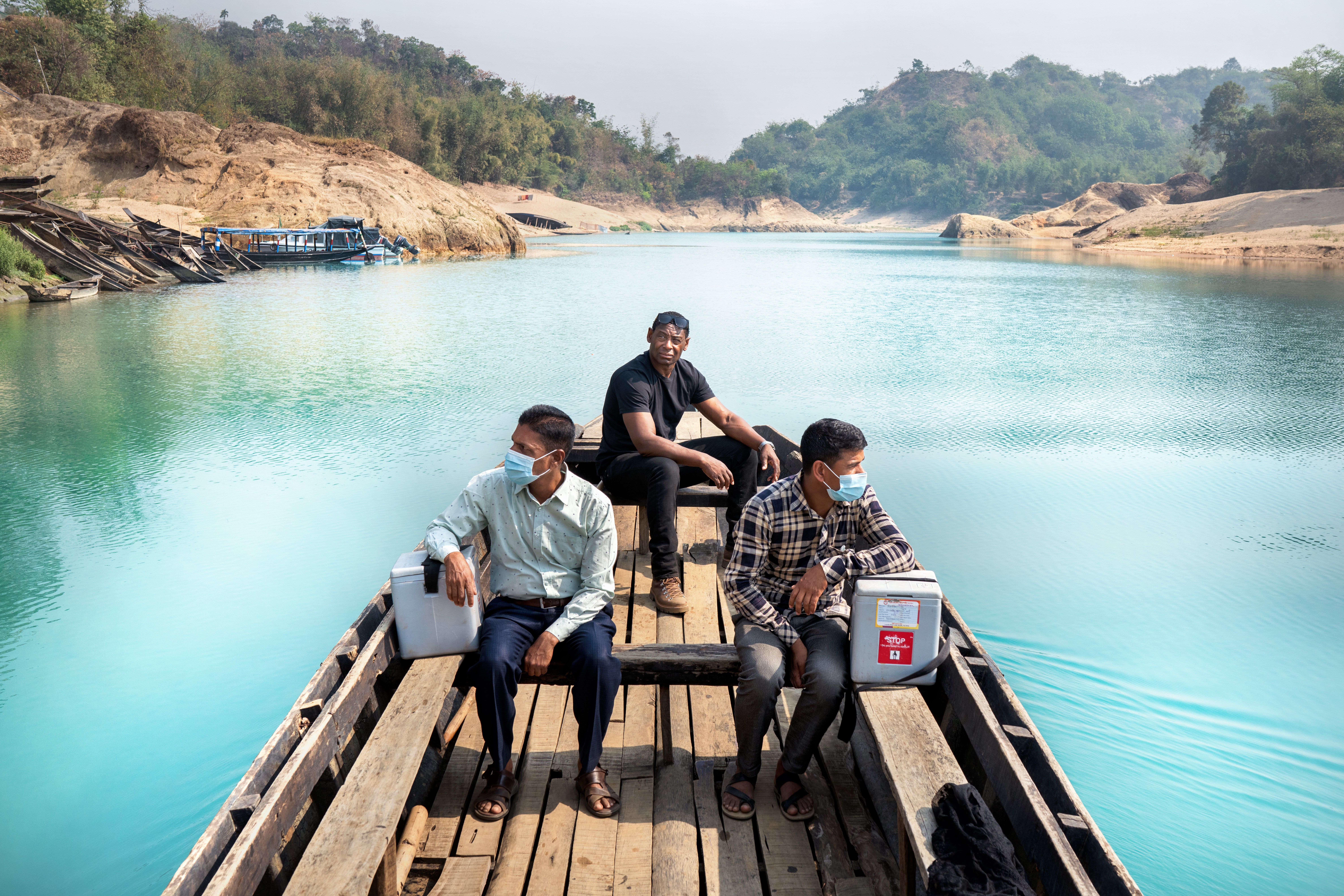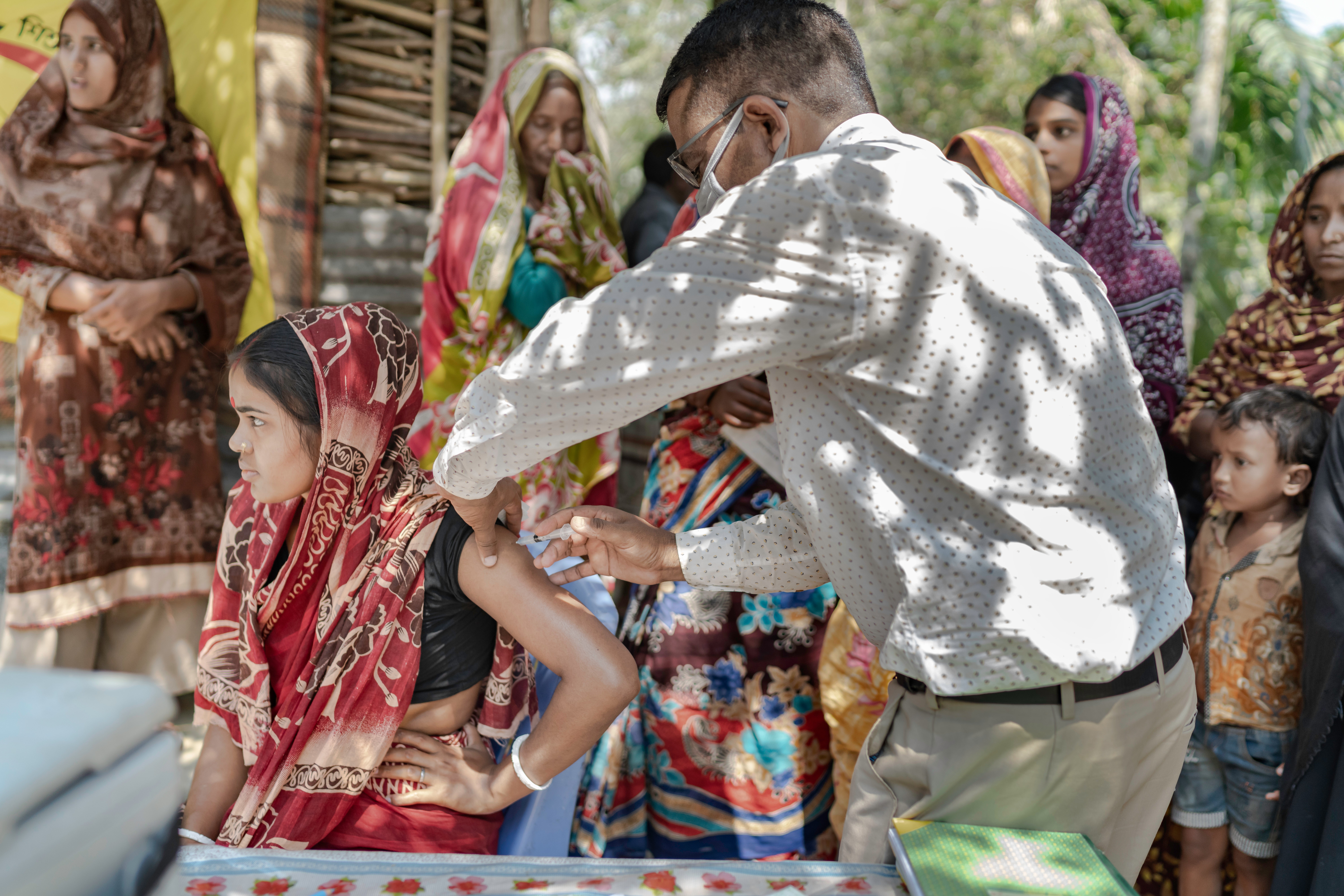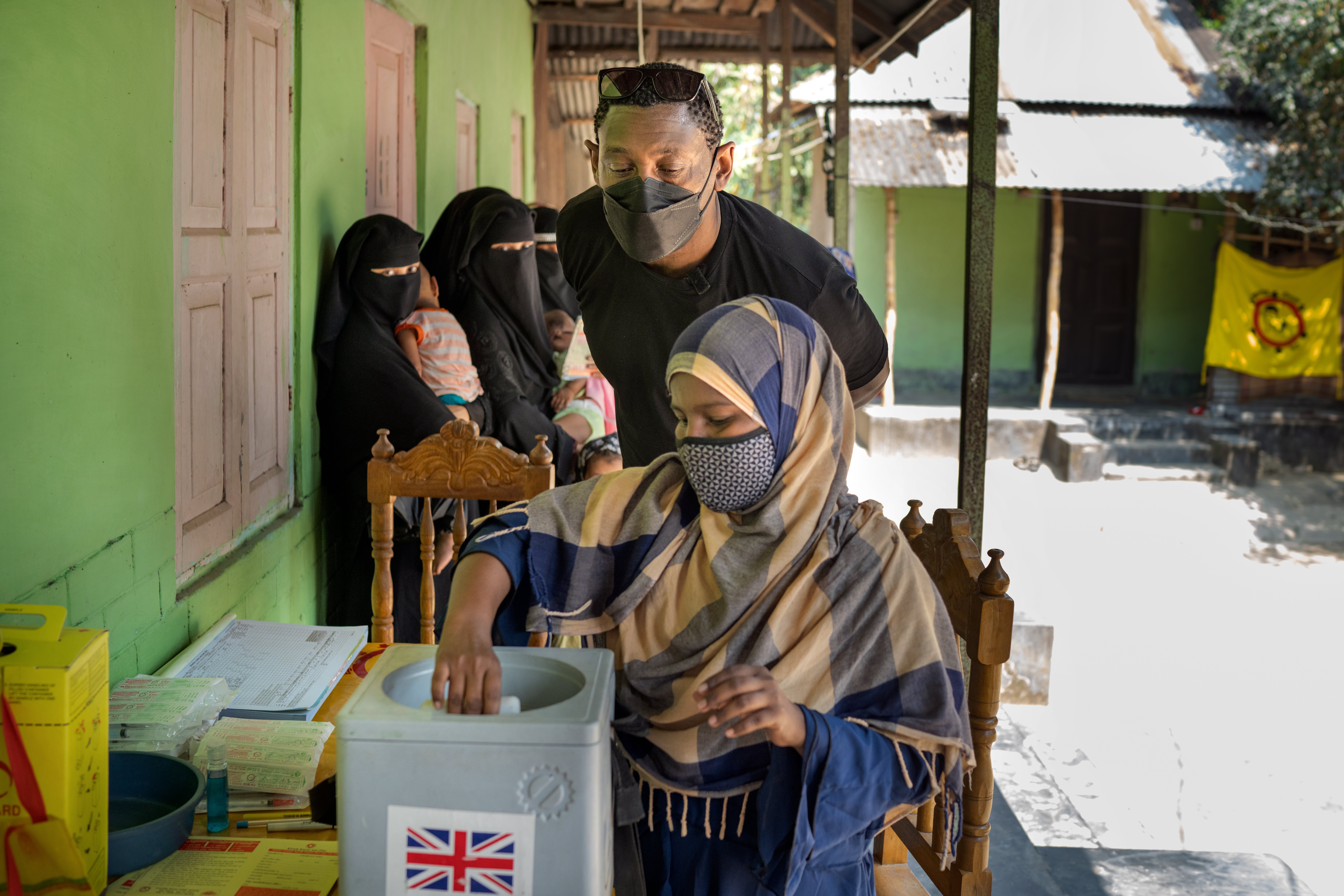
David Harewood on a visit to Unicef projects in Sylhet, Bangladesh
(Picture: Unicef)At the end of a long journey by truck, boat and on foot that brought chilled vaccines to a remote corner of Bangladesh, David Harewood watches healthworkers set up a pop-up vaccination centre in the courtyard of a house and get straight to work.
“This gentleman’s garden became a health centre, basically. And he opened it up to the community. And once they set up, people came out of the woods, came out of their houses, people came from miles around to this one man’s house, walking for hours,” says the British actor and documentary maker who serves as a goodwill ambassador for Unicef UK.
“It wasn’t just Covid vaccines, they’re also getting routine immunisations; the babies would get polio vaccines. I just thought it was extraordinary,” says Harewood, who travelled from the capital Dhaka to the lush highlands of Sylhet near the Indian border - following the “cold chain” that ensures vaccine vials are kept cool.

Bangladesh’s Covid vaccine rollout has been one of the most successful in the developing world, building on a foundation of trust cemented in its well-established programme of routine immunisations against other infectious diseases.
With a vaccination rate of 70 per cent, Bangladesh has shown huge dedication to getting the Covid vaccine out to its most far-flung areas, with support from Unicef, the UN agency responsible for vaccinating more than half the world’s children.
It has been a mammoth undertaking. More than 115 million people have received two doses of Covid vaccines, with more than half of doses coming from the COVAX vaccine-sharing facility.
There were supply constraints at first and then the challenges of dealing with a portfolio of vaccines with different protocols, says Sheldon Yett, the head of Unicef in Bangladesh.
“To ensure that the right vaccine goes in the right arm and the right way, takes work. It means that you have to work with healthcare workers on the ground, make sure everybody knows exactly what they’re doing,” says Yett on the phone from Bangladesh.
Another challenge was creating the cold chain. “The kind of ultra-low temperatures that the Pfizer, Moderna and other vaccines require is a whole new ballgame,” says Yett. “So we had to quickly and massively expand capacity around the country for refrigerators. Make sure the electricity supply was there, make sure that when you turn turned on the freezer, you didn’t trip out the rest of the hospital. “
At the same time health workers needed to build trust - countering misinformation and letting people know the jab was safe and available.

Crossing a cobalt blue river to reach communities working in the tea plantations that blanket the hillsides of Sylhet, Harewood was able to witness the fruits of these efforts first-hand. “They’ve engaged the population there to get themselves protected from Covid, as well as maintaining the routine immunisations against polio, measles, mumps and rubella,” he says.
“The way the community had come together ... it was just a miracle, and really inspiring to see that there are people who are prepared to do that for their communities: to walk for hours to bring them these precious vaccines.”
Harewood has returned to London with a message for the British government, and is heading to parliament this week - World Immunisation Week - to call for greater funding for health systems in the world’s poorest nations to protect children against future crises.

“We have a real opportunity here, after the pandemic to strengthen healthcare systems. I think we have realised that if you have strong healthcare systems you can keep teachers in school, you can keep kids in school.
“I’ll be going off to parliament to encourage our government not to abandon their obligations. It’s easy to say we should help ourselves first, but those children that I met are some of the most vulnerable on the planet,” says Harewood.
“It’s not too difficult for us, for our government, to help them help themselves.”







